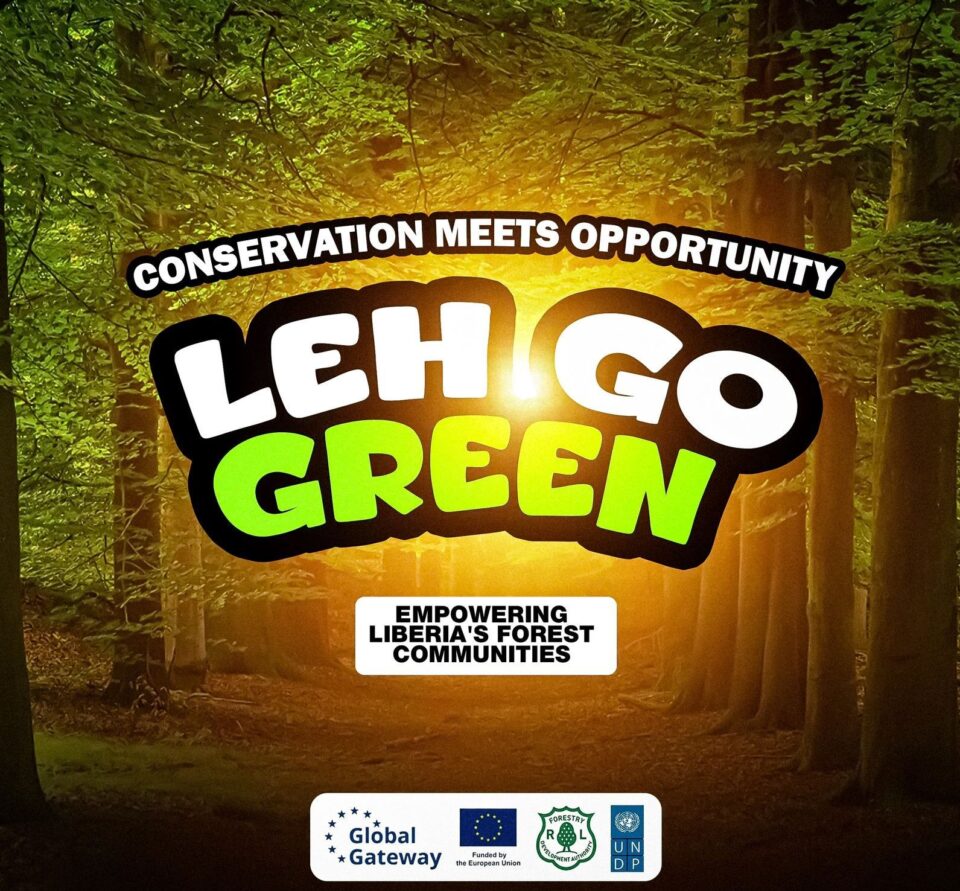Monrovia, Liberia: On May 15th, the EU and FDA are set to launch the “LEH GO GREEN” programme, which will be implemented by the United Nations Development Programme (UNDP), says a statement from the UNDP today, Wednesday, May 14, 2024.
The launch in Monrovia will bring together high-level stakeholders from the Government of Liberia, the donor community and civil society, and will be followed by two other launch events in targeted project communities in Grand Gedeh and Grand Cape Mount Counties.
Climate change and environmental degradation have no borders and pose an existential threat to the entire world. For this reason, the sustainable management of forest and biodiversity conservation is a priority for the EU and its Member States, as well as for the Government of Liberia (GoL).
“Forest and conservation are vital for us, for Liberia, and all, for present and future generations. We are the people who can do something now, as nobody else will do it on our behalf, we have a shared responsibility to sustainably manage this unique and beautiful natural heritage, so “leh go green together” said Nona Deprez, EU Ambassador.
“LEH GO GREEN” is an EU-funded project (worth USD 4.8 million) focusing on forest communities in Liberia’s northwest and southeastern landscapes, including Gola Forest National Park and Grebo-Krahn National Park. In a framework of conservation-oriented activities and the fight against poverty, the purpose of the project is to increase forest-based revenue and improve livelihood for the populations.
With its innovative and people-centered approach, “Leh Go Green” works at the community level, targeting and supporting forest communities as champions of forest protection and conservation.
Liberia’s forest resources face several challenges and threats that cause considerable damage to the integrity and functionality of ecosystems, negatively affecting soils, forests, water quality, valuable flora, and wildlife, but also compromising the future and potential development of the communities themselves, as very often they are directly dependent on the natural resources and services provided by the forest.
The three-year project will promote the sustainable utilization of forest resources to achieve economic and conservation growth. Innovative approaches will be piloted, like conservation agreements and sustainable community-based logging practices, to balance commercial and conservation activities. More importantly, the project will promote carbon sequestration and reduce greenhouse gas emissions in the forest sector.
Activities will also address climate change mitigation by enhancing forest restoration in degraded areas and promoting diversified livelihoods that can respond to environmental shocks and stresses, hence increasing economic opportunities for underserved populations,
especially women and youth. Support for village savings and loans will strengthen community-based enterprises and pilot activities will offer alternative sources of proteins in cane rats and snail breeding to combat the illegal trade in bush meat.
Forest-based medium and small-scale enterprises (MSMEs) will receive business development skills to scale up their operations and contribute to job and income creation.

